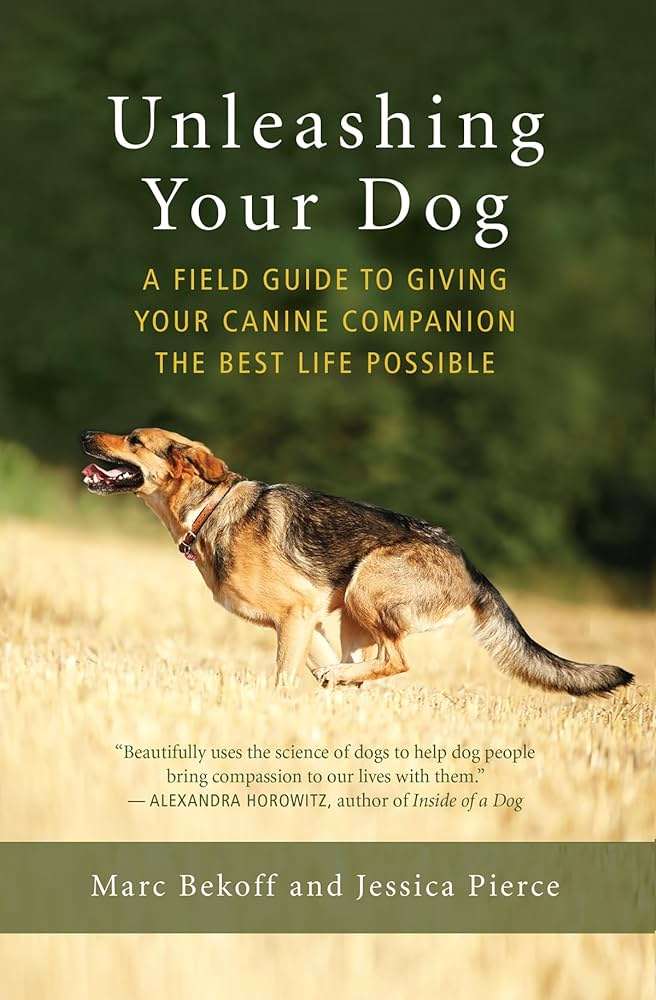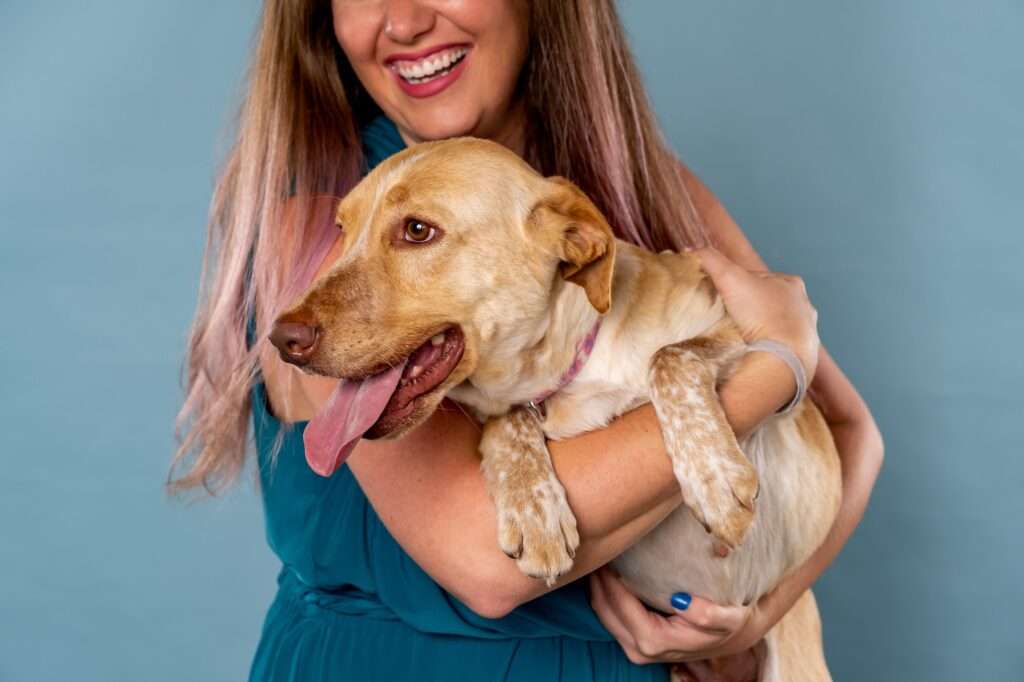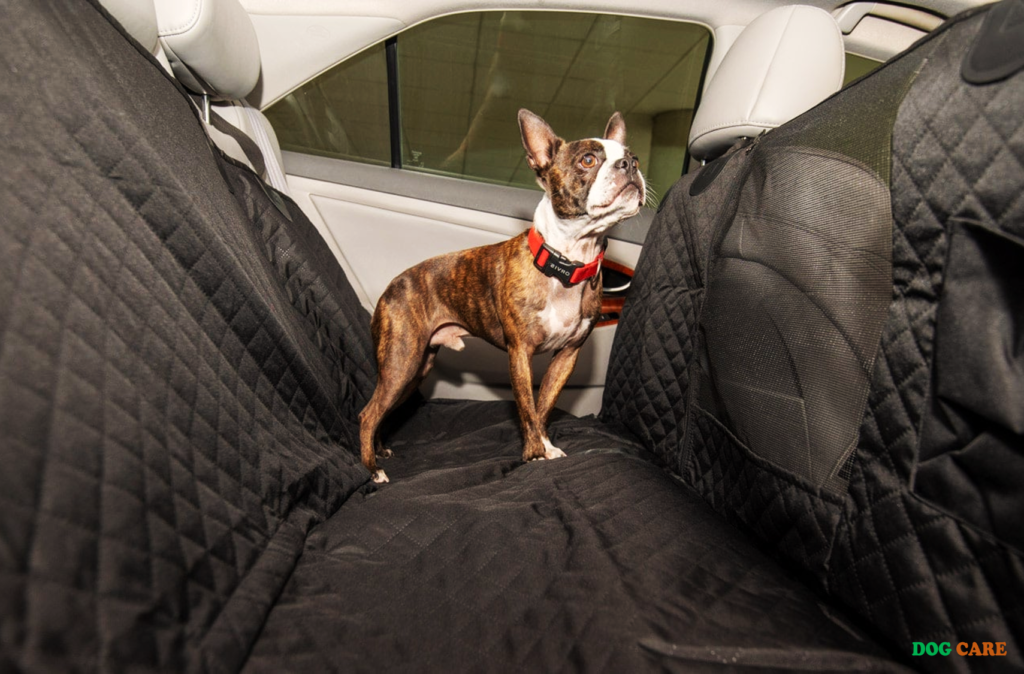Dental Care for Dogs – Dental care is vital for dogs to maintain healthy teeth and overall well-being. Neglecting dental hygiene can lead to various oral problems and health issues.
Proper dental care is not only crucial for humans but also for our furry friends. Dogs, like humans, can suffer from oral issues like plaque, tartar, and gum disease. Ignoring these problems can lead to severe discomfort and health complications for our beloved pets.
That’s why prioritizing dental care for dogs is essential. From regular brushing and dental chews to professional cleanings, there are several ways to ensure your dog’s teeth and gums stay healthy. By establishing good oral hygiene habits and seeking veterinary assistance when needed, you can help prevent dental problems and contribute to your dog’s overall health and happiness. We will explore the importance of dental care for dogs and provide practical tips to ensure your furry friend’s oral health.
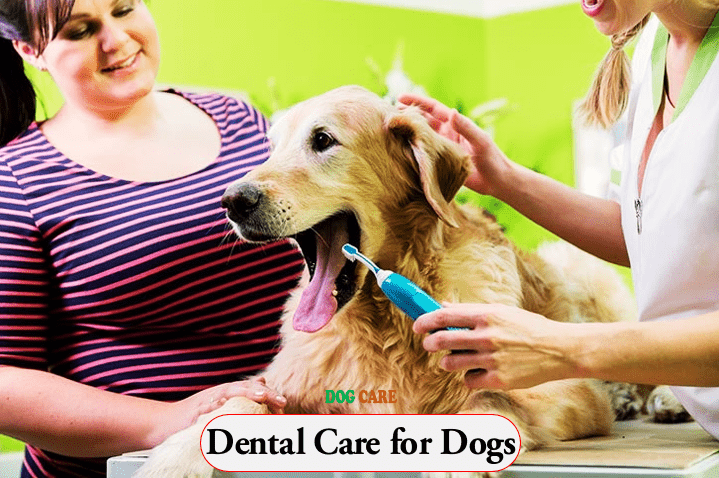
Why Dental Care Is Important For Dogs
Proper dental care plays a crucial role in maintaining a dog’s overall health. Regular brushing, cleanings, and appropriate chew toys can prevent dental issues, such as tartar buildup and gum disease, ensuring a happy and healthy smile for your furry friend.
Dental care is one of the most crucial aspects of overall health for dogs. Just like humans, dogs can develop dental problems that can lead to various health issues if left untreated. Poor dental hygiene in dogs can result in gum disease, tooth decay, and infections. These dental issues can cause pain, discomfort, difficulty eating, and even organ damage if bacteria from the mouth enter the bloodstream. Regular dental care is essential to ensure your furry friend’s overall health and prevent dental disease.
Preventing Dental Disease
Preventing dental disease in dogs is essential to maintain their oral health. By establishing a regular dental care routine, you can significantly reduce the risk of dental issues. Brushing your dog’s teeth regularly is the foundation of effective dental care. It helps remove plaque and tartar buildup, which are major contributors to dental disease. Additionally, providing your dog with dental chews or toys designed to promote teeth cleaning can further aid in preventing dental disease.
Improving Overall Health
Good oral health goes beyond just preventing dental problems. It also plays a vital role in improving your dog’s overall health. Dental disease in dogs can lead to additional health complications, as the bacteria from the gums can enter the bloodstream and affect other organs, including the heart, liver, and kidneys. By prioritizing dental care, you can help keep your dog’s teeth and gums healthy and reduce the risk of these serious health conditions. Maintaining your dog’s overall health is crucial for their longevity and well-being.
Signs Of Dental Problems In Dogs
Dental care is not just important for humans, but for our furry friends as well. Dogs can also develop dental problems that may require professional attention. It’s crucial for pet owners to be aware of the signs that indicate their dogs may be experiencing dental issues. Prompt detection and treatment can help prevent further complications and ensure our furry companions have healthy smiles. Here are some common signs of dental problems in dogs:
Bad Breath
Does your dog’s breath knock you off your feet every time they give you a smooch? Bad breath, also known as halitosis, can be a sign of dental problems in dogs. Unlike the occasional stinky breath after eating something unpleasant, persistent bad breath may indicate an infection or periodontal disease. If your dog’s breath has become unbearable, it’s time to schedule a dental check-up.
Excessive Drooling
While some dogs naturally drool, excessive drooling can be a cause for concern. If you notice that your dog is drooling more than usual, it could be a sign of dental issues. Excessive drooling can indicate oral pain, gum inflammation, or an abscess in the mouth. It’s essential to monitor your dog’s drooling habits and consult a veterinarian if you observe any significant changes.
Swollen Or Bleeding Gums
Swollen or bleeding gums are clear indications that your dog’s oral health needs attention. Inflamed or bleeding gums often signal gum disease, gingivitis, or even an oral infection. You may notice redness, swelling, or bleeding when your dog chews on toys or eats. Paying close attention to your dog’s gum health can help catch dental problems early and prevent further complications.
As responsible pet owners, it’s our duty to prioritize our dog’s dental care. Keeping a keen eye out for these signs of dental problems can help catch issues early, enabling timely intervention. Additionally, maintaining a regular dental care routine at home, such as brushing your dog’s teeth and providing recommended dental treats or toys, can contribute to their long-term oral health.
Tips For Maintaining Your Dog’s Dental Health
Keeping your dog’s teeth and gums healthy is essential for their overall well-being. Just like humans, dogs can suffer from dental issues such as gum disease, tooth decay, and bad breath. However, with proper care and a few simple practices, you can ensure that your furry friend’s oral health stays in top shape. Here are some effective tips for maintaining your dog’s dental health:
Regular Brushing
Regular brushing is key to maintaining your dog’s dental health. Just like humans, dogs need their teeth cleaned to prevent the buildup of plaque and tartar, which can lead to gum disease and other oral problems.
To brush your dog’s teeth:
- Use a toothbrush and toothpaste specifically designed for dogs. Human toothpaste can be harmful if ingested by your dog.
- Gently introduce your dog to the toothbrush, allowing them to get used to the sensation.
- Start by brushing a few teeth at a time, gradually increasing the number of teeth you clean during each session.
- Use gentle circular motions to brush the teeth and along the gumline.
- Reward your dog with praise and treats after each successful brushing session to create a positive association.
Using Dental Treats And Chews
Using dental treats and chews is another excellent way to maintain your dog’s oral health. These products are designed to help remove plaque and tartar from your dog’s teeth while providing a tasty reward.
When choosing dental treats and chews:
- Look for products that have the Veterinary Oral Health Council (VOHC) seal of approval, ensuring they meet specific dental health criteria.
- Opt for treats and chews that are appropriately sized for your dog’s breed and age.
- Consider the ingredients used in the product, ensuring they are safe and beneficial for your dog’s oral health.
- Supervise your dog when giving them dental treats and chews to prevent choking or swallowing large pieces.
Professional Dental Cleanings
In addition to regular brushing and treats, professional dental cleanings from your veterinarian are also essential for your dog’s dental health.
During a professional dental cleaning:
- Your veterinarian will perform a thorough examination of your dog’s teeth and gums to identify any underlying issues.
- Tartar and plaque will be removed using specialized tools.
- The teeth will be polished to eliminate any rough surfaces that can trap bacteria and lead to gum disease.
- Your veterinarian may take X-rays of your dog’s teeth to detect any hidden dental problems.
- If necessary, your veterinarian may recommend additional treatments such as extractions or root canal procedures to treat advanced dental issues.
Regular professional dental cleanings are crucial to preventing and treating dental problems in your dog and ensuring their oral health is maintained.
Choosing The Right Dental Products For Your Dog
Proper dental care is a crucial aspect of your dog’s overall health and well-being. Just like humans, dogs need regular dental hygiene to prevent dental diseases and maintain their oral health. But how do you choose the right dental products to keep your furry friend’s teeth clean and healthy? Let’s explore some options:
Toothbrushes And Toothpaste
Using a toothbrush and toothpaste specifically designed for dogs is an effective way to clean your dog’s teeth. Look for toothbrushes with soft bristles and a long handle for easy maneuvering. Dog toothpaste is formulated to be safe for ingestion and come in a variety of flavors that dogs love. Remember to never use human toothpaste as it can be harmful to your dog.
Dental Treats
Dental treats are not only a great way to reward your pup but also help improve their oral health. These treats are designed to remove plaque and tartar buildup while freshening your dog’s breath. Look for dental treats with natural ingredients and textures that help scrub your dog’s teeth as they chew. Remember to choose treats that are appropriate for your dog’s size and breed.
Water Additives
Water additives can be a convenient and effective way to maintain your dog’s oral hygiene. These solutions are simply added to your dog’s water bowl and help reduce plaque and tartar accumulation, as well as prevent bad breath. Look for water additives that are specifically formulated for dogs, free from harmful chemicals, and easy to use. Remember to follow the manufacturer’s instructions for proper dosage and usage.
Conclusion
By choosing the right dental products for your dog, you can ensure their teeth and gums stay healthy and free from diseases. Whether it’s using a toothbrush and toothpaste, dental treats, or water additives, incorporating these products into your dog’s oral care routine can make a significant difference. Remember, regular dental check-ups with your veterinarian are also essential for maintaining your dog’s dental health.
Common Mistakes To Avoid In Dog Dental Care
Proper dental care for dogs is essential to their overall health, but there are common mistakes to avoid. Regular teeth brushing, using pet-friendly toothpaste, and avoiding human dental products are key to maintaining your dog’s oral hygiene.
Neglecting Regular Dental Exams
One of the most common mistakes dog owners make when it comes to dental care is neglecting regular dental exams. Just like humans, dogs need regular dental check-ups to ensure their oral health is in check. By skipping these exams, you could be putting your furry friend’s oral health at risk.
Using Human Toothpaste
Using human toothpaste on your dog’s teeth is another crucial mistake to avoid. Regular toothpaste meant for humans contains ingredients that can be harmful to your dog if ingested. It’s essential to use specially formulated dog toothpaste that is safe and non-toxic for your pet. Remember, what may be safe for us humans may not be safe for our canine companions.
Ignoring Dental Pain Signs
Dental pain signs in dogs can go unnoticed if you’re not paying attention. Ignoring these signs can lead to severe oral health issues for your furry friend. Look out for signs such as excessive drooling, bad breath, swollen or bleeding gums, difficulty eating, or pawing at the mouth. If you notice any of these signs, it’s important to address them promptly and seek dental care from a veterinarian.
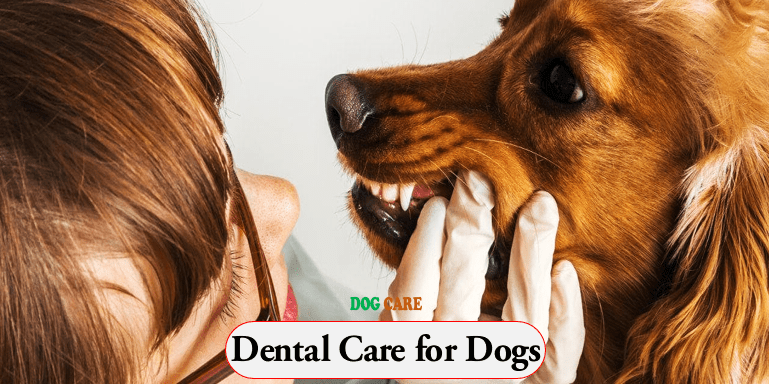
Frequently Asked Questions For Dental Care For Dogs
Can Dogs Get Cavities?
Yes, dogs can get cavities. Just like humans, dental plaque and bacteria can build up on their teeth, leading to tooth decay and cavities. Regular dental care, such as brushing their teeth and providing dental treats, can help prevent cavities in dogs.
How Often Should I Brush My Dog’s Teeth?
You should brush your dog’s teeth at least 2-3 times per week. This helps to remove plaque and prevent tartar buildup, which can lead to dental problems. Start with a soft toothbrush and dog-friendly toothpaste, and gradually introduce your dog to the brushing routine.
Are Dental Chews Effective For Dogs’ Oral Care?
Yes, dental chews can be effective for dogs’ oral care. They help to remove plaque and tartar from the teeth through chewing action. Look for dental chews that are specifically designed to promote oral health and always choose the appropriate size and texture for your dog’s breed and age.
Conclusion
Proper dental care is vital for the overall health and well-being of your furry friend. By implementing a regular dental care routine, including brushing their teeth, providing dental-friendly toys, and scheduling regular check-ups with your veterinarian, you can help prevent dental issues and ensure your dog has a healthy smile.
Remember, a little effort in dental care goes a long way in keeping your dog’s mouth fresh and their teeth strong. Invest in their dental health today for a lifetime of happy wagging tails.
